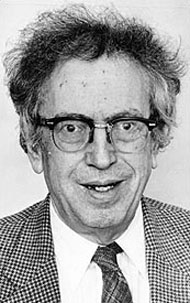

I read Perloff's article on Hugh Kenner today and found it to be really helpful. I find Marjorie Perloff in general to be just a helpful person. Am I wrong to like her so? (it's probably because she's my go to explicator for poetry. What do you poecritics think?) And who knew Kenner was so goofy looking.
A Snippet (real link at bottom):
What do these modernist poets have in common? Kenner never spelled it out, but he demanded two things from modernist literature. One was accuracy of presentation-what Pound called "constatation of fact"-which was by no means mere facticity. The other was a conjunction of literary innovation with that of the other arts, sciences, and technologies. No Modernist writer, Kenner felt, could be impervious to Einsteinian physics or to such technological inventions as the X-Ray, the Marconi wireless, the airplane, and the typewriter. In The Mechanic Muse (1987), Kenner studies the role the typewriter played in the invention of a new poetry with regard to lineation, stanza form, and page design. Thus Yeats, Kenner shows, was still a poet of the handwritten page, Pound of the typed one. And it was Kenner who established the chronology of the separate Waste Land manuscripts by studying the typewriters on which they were composed.
But perhaps the most important demand Kenner placed on the twentieth-century text-and this has not always been understood-is that it be international. To write only for or about one's countrymen was no longer enough. Here the key Kenner text is A Sinking Island (1988), a book whose dismissive treatment of twentieth-century British writing caused consternation, especially in London but also in New York, where Bruce Bawer responded with "Hugh Kenner: A Sinking Oeuvre."3 A Sinking Island argues that, unlike Continental Europe or the United States, Britain never underwent an avant-garde phase, and hence its post-World War II writing was largely tame and regressive. One can refute this argument readily; indeed, in recent years, British poetry and fiction have often been more adventurous than our own. Still, Kenner is onto something important: that the rigid class structure of England, which lasted well into the 1960s, was inimical to avant-garde innovation.
One key to understanding Kenner the critic is that he considered himself an outsider. A Canadian of Scottish-Irish descent who lost most of his hearing in childhood as a result of influenza, a Catholic convert among Protestant Anglo-Canadians, Kenner was never at home at Yale, where his Toronto mentor Marshall McEuhan sent him for his Ph.D, and even less at home in England, whose residual Imperialism and Oxbridge snobbery he found irritatingly oppressive. Not surprisingly, then, Kenner early on determined that the "real" British modernists were, with rare exceptions like D. H. Lawrence, who was working class, not English, but foreigners: James, Pound, and Eliot (American), Conrad (Polish), Ford (German), and especially the Irish: Yeats (when not engaged in theosophical mumbo jumbo), Joyce, and Beckett.
http://proquest.umi.com/pqdlink?did=907763401&Fmt=3&clientId=17210&RQT=309&VName=PQD
